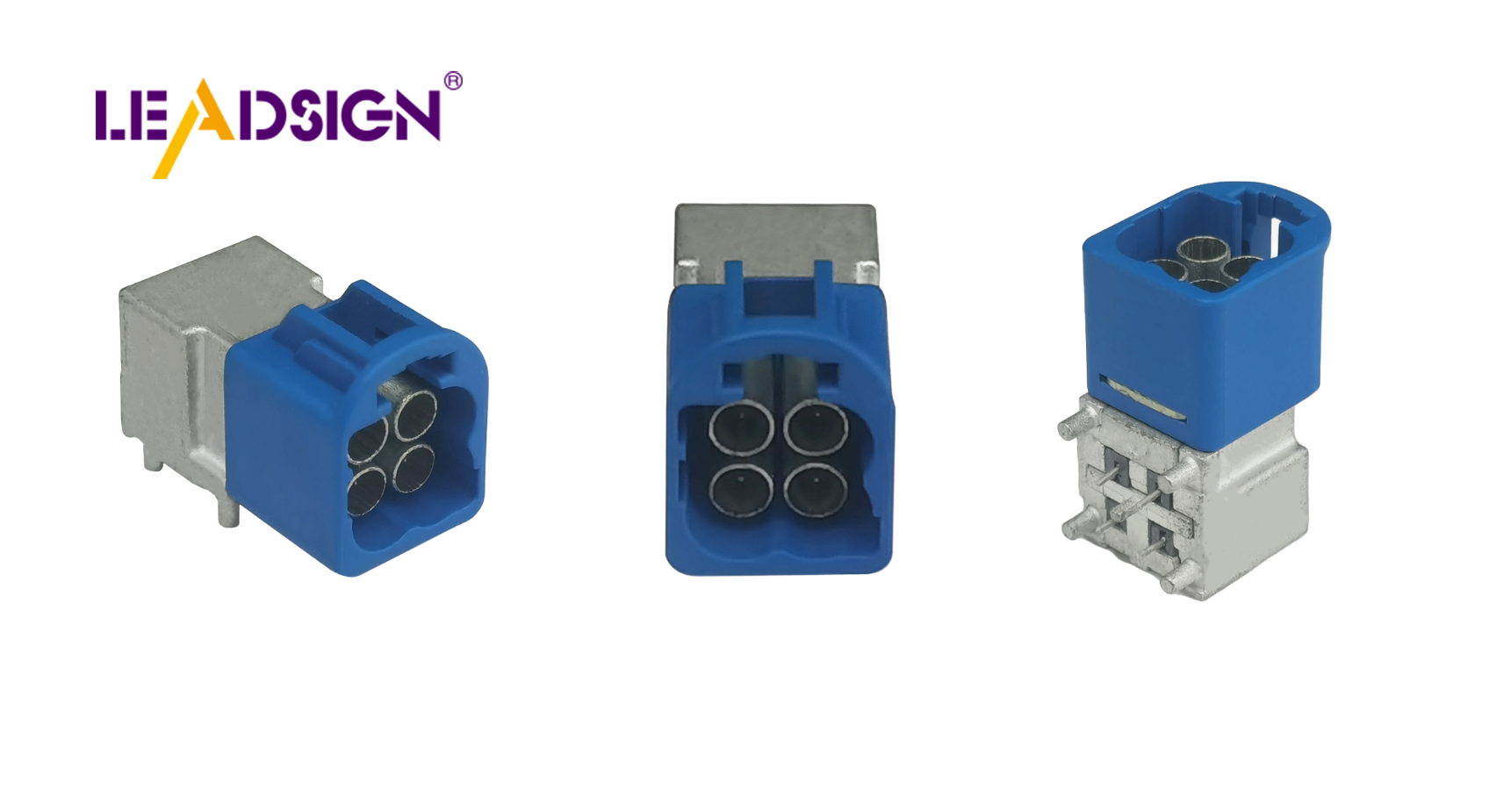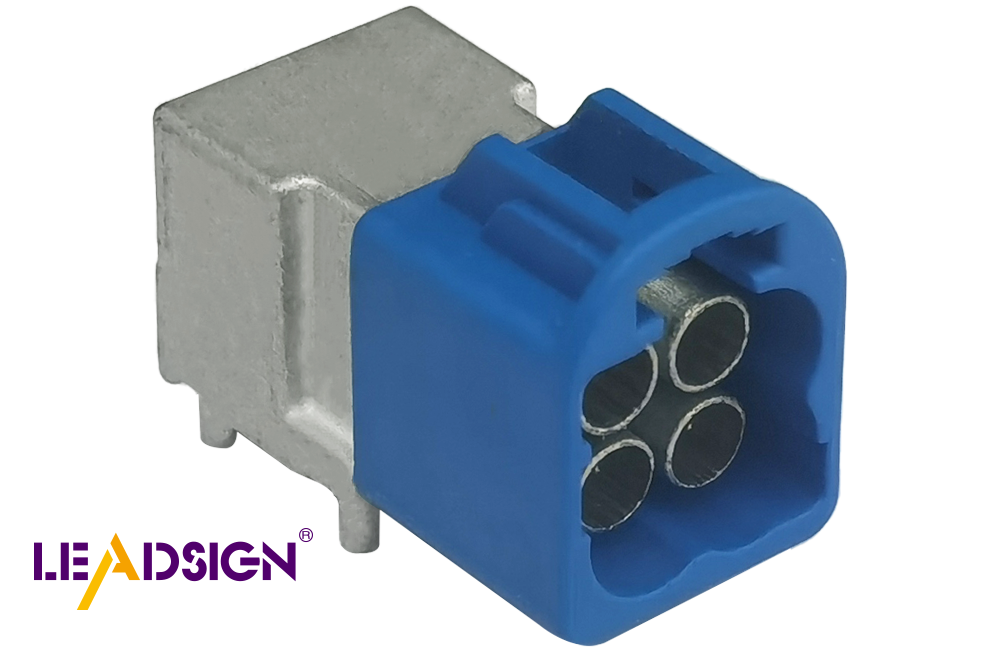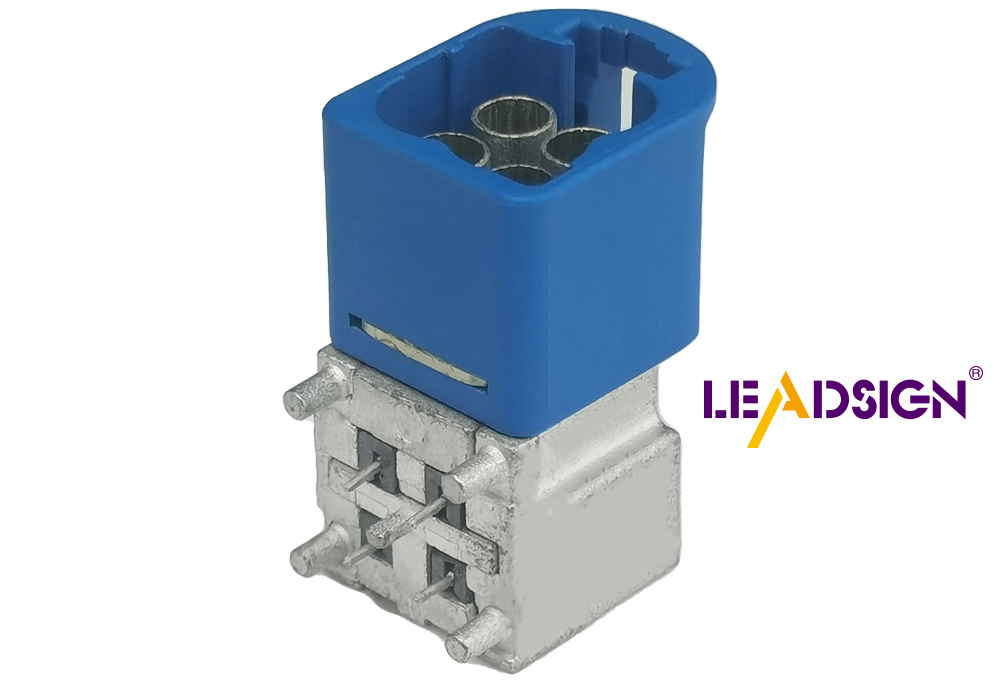Automotive Electrical Connectors Types Compared

Car electrical connectors are very important in today's cars. They help with communication and power. There are various automotive electrical connectors types, including:
Blade connectors
Bullet connectors
Butt connectors
Pin connectors
Ring connectors
Choosing the right connector is key for optimal performance. As cars become more complex, the demand for these connectors increases. The market was valued at USD 7.9 billion in 2022 and is projected to grow by 7% each year until 2032. This highlights the significance of selecting the appropriate connector for each automotive application.
Overview of Automotive Electrical Connectors
Definition and Importance
Car electrical connectors are key parts in vehicles. They help send power and signals between systems. These connectors keep circuits connected, ensuring they work well in tough car conditions. Good connectors affect how cars perform and stay safe. OEM connectors are better than regular ones because they save money over time, improve safety, and last longer. This makes them important for car use.
General Applications
These connectors are used in many vehicle systems. They link parts like alternators, ignition coils, and fuel pumps to share power and information smoothly. In new cars, strong connectors are needed for fast data sharing and to handle tough conditions. Weatherproof connectors are crucial as they resist heat, water, and shaking.
In heavy-duty uses, these connectors must be strong and easy to fix. They reduce the time cars aren't working and help them last long. Heavy-duty connectors are made from special materials that make them work well in hard places like factories or outdoors. As cars get more advanced, these connectors become even more important in modern car design.
Types of Automotive Electrical Connectors

Blade Connectors
Blade connectors, also called spade connectors, are important in cars. They have a flat metal piece that fits into a slot. This makes them easy to use and reliable. Blade connectors are great for places needing quick disconnection, like fuse boxes. Their design keeps them secure so they don't come loose from vibrations.
Bullet Connectors
Bullet connectors have male and female ends and are used in many places. They work well in cars and boats because they are easy to use. You can find them in different sizes and materials like metal or plastic. Bullet connectors fit tightly, making sure the connection stays strong even when things move around.
Butt Connectors
Butt connectors join two wires together straightly. They help electric signals flow smoothly between parts. These connectors are handy when you need to extend wires or fix broken ones. They're easy to install, which is why many car repair people like them. By keeping connections steady, butt connectors help cars work safely.
Pin Connectors
Pin connectors are very important in car electrical systems. They have a pin and a socket, which helps them connect well. These connectors are used where space is tight, like in engines or dashboards. Their design makes sure they fit tightly, so they don't come loose when things shake.
Pin connectors can have one pin or many pins. This makes them useful for different car jobs. They are made from strong stuff like metal or good plastic. This helps them last long and handle tough conditions. Because of this, pin connectors are liked by many for car use.
Ring Connectors
Ring connectors are also key in car electrical systems. They have a ring end that goes over a bolt or stud for a strong hold. This makes them great for grounding and battery connections where strength is needed.
Ring connectors come in different sizes to fit various bolts, making them work with many car parts. They're often made from materials that resist rust, like copper or brass, to handle wetness and other weather issues. Their simple and reliable design makes ring connectors important for keeping cars safe and working well.
Comparison of Connectors

Durability
Durability is very important when picking car connectors. Blade connectors are strong because they have a flat metal part. This helps them stay in place even if things shake a lot. Bullet connectors are shaped like a cylinder and hold tight, so they work well in cars and boats. Butt connectors, also called splice connectors, join wires tightly together. They make sure the electric connection stays strong for a long time. Their tough build makes them great for car wiring where strength matters.
Ease of Use
Ease of use is also key to think about. Blade connectors are easy to use because you just plug them in or pull them out quickly. This makes them handy in places like fuse boxes. Bullet connectors are simple too, with parts that snap together easily. They come in different sizes and materials like metal or plastic to fit what you need. Butt connectors make joining wires easy, which is why car repair people like using them.
Application Suitability
Different connector types work best for different jobs. Blade connectors are good when you need to unplug often, like in fuse boxes or relay panels. Bullet connectors can be used in cars and boats because they fit well and work in many places. Butt connectors help extend wires or fix broken ones, keeping the electric signals flowing smoothly. They keep connections steady, making them important for fixing and taking care of cars.
Picking the Best Connector
Choosing a connector for cars means knowing some important things. Each connector type has its own good points. Picking the right one can make a car's electrical system work better and last longer.
Things to Think About
Durability: Connectors need to last, especially in tough car conditions. They should handle shaking, temperature changes, and wetness. OEM connectors are made strong to meet car needs and work well for a long time.
Ease of Use: Some connectors are simple to put in and take out. Blade connectors are easy to disconnect, great for spots needing lots of checks. But butt connectors are best for staying put because they’re easy to install.
Application Suitability: Different jobs need different connectors. Bullet connectors are good when you unplug often, while butt connectors stay put in high-power places. Knowing what you need helps pick the right connector.
Material Composition: The stuff used in connectors matters for how long they last and work well. Good materials help them handle power and resist weather problems, which is key for heavy-duty ones.
Environmental Resistance: Connectors should fight off water, dirt, and heat or cold. Weatherproof connectors keep working even in these tough spots.
Real-Life Examples
Frequent Maintenance Areas: In fuse boxes needing regular checks, use blade connectors because they're easy.
Permanent Installations: For connections that shouldn't be moved like in engines, use butt connectors, as they hold tight.
High-Vibration Environments: Where things shake a lot like engines, use pin connectors, as they fit snugly.
Heavy-Duty Applications: In rough places like building sites, strong traditional ones work best because they're reliable.
Picking the right connector helps systems run well and makes them smaller and lighter too. This smart choice saves money by avoiding fixes or unhappy customers.
Understanding car electrical connectors is important for cars to work well. Each type, like blade or ring, has special uses. Picking the right one makes car systems strong and efficient.
Industry Professionals say it's important to pick connectors that are tested and reliable.
When picking connectors, think about what you need and where you'll use them. For tough places, check if they resist dust and water by looking at the IP rating. By choosing wisely, you can have strong and lasting car connections.
See Also
Understanding HSD Connectors Essential for Automotive Applications
Why Fakra Connectors Are Crucial for Today's Vehicles
Key Benefits of HFM Connectors for Automotive Use

